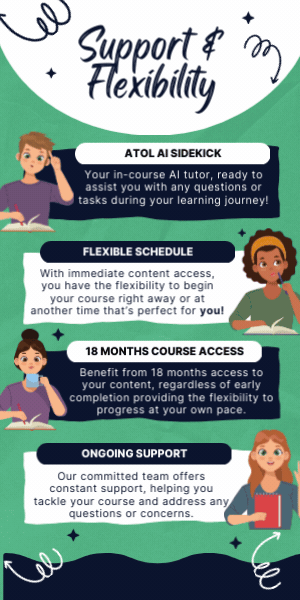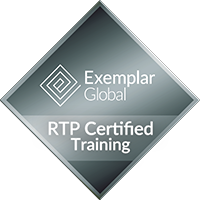| Approx Course Duration *: | Equivalent to Approx. 1hr |
| Access to Course Content: | 18 Months from the date of enrolment |
| Qualification/s: | Analyse NDIS Practice Standards |
| CPD Hours: | 1 Continuing Professional Development Hours |
Analyse NDIS Practice Standards
ATOL’s Analyse NDIS Practice Standards course gives you a practical, structured understanding of how to interpret and apply the NDIS Practice Standards—equipping you to assess quality, uphold rights, and strengthen service delivery.
This self-paced microcredential dives into the purpose and structure of the NDIS Practice Standards, how they shape real-world service practices, and what best practice looks like in the disability support sector.
You'll explore what these standards mean in context, how to align them with current service delivery practices, and how to involve stakeholders and participants meaningfully in the audit process.
Whether you’re new to NDIS compliance or building confidence as an auditor, this course supports you in understanding how to turn principles into practical outcomes for quality, safety, and continuous improvement.
Who This Course Is For
This course is ideal for:
- Aspiring or early-career NDIS auditors seeking real-world clarity on the Practice Standards
- Compliance professionals working with or within NDIS-registered providers
- Disability service providers preparing for audit and wanting to align services with standards
- Consultants, governance leaders and support coordinators looking to deepen their quality knowledge
- Professionals upskilling to interpret and apply standards through a participant-centred lens
If you’re involved in interpreting NDIS standards—or preparing to be—this course will give you the structure, confidence, and critical lens to analyse them well.
Why Take This Course?
Because NDIS audits are about more than ticking boxes—they’re about understanding how the standards support safe, ethical, and individualised care.
This course helps bridge the gap between documentation and real-world delivery. It empowers professionals to read between the lines of policy and see how quality, risk, and rights-based practice interact across a service.
You’ll walk away better equipped to analyse audit findings, respond to nonconformities, and contribute meaningfully to service improvement.
Step Into the NDIS Practice Standards With Confidence
Whether you're looking to:
- Build a stronger foundation in NDIS auditing
- Guide your organisation toward best practice
- Or enhance how you support quality improvement in the sector
This course brings the NDIS Practice Standards to life—so you can deliver, support, and assess them with clarity and purpose.
INTERPRET THE PURPOSE FOR EACH SECTION OF THE NDIS PRACTICE STANDARDS
- Introduction to NDIS and the Practice Standards
- Outline of the NDIS Practice Standards
- Summary
DISCUSS THE FOCUS ON PEOPLE WITH DISABILITY WITHIN THE PRACTICE STANDARDS
- People with disability in the NDIS Practice Standards
- The role of people with disability within the NDIS Practice Standards
- Summary
ORGANISE, INTERPRET, AND REVIEW THE STANDARDS AGAINST BUSINESS AND SERVICE PRACTICES
- NDIS standards and best practice in service delivery
- Established business and service delivery practices
- What exactly is best practice?
- Understanding NDIS audit ratings and best practice
- Summary
CONFIRM ANALYSIS OF ESTABLISHED PRACTICES FROM RELEVANT STAKEHOLDERS
- Stakeholder input and best practices
- Stakeholders
- Summary
This course is currently undergoing certification and will be available shortly.
Register Your Interest Enquire about this courseCourse details:
-
Coming Soon
-
Approx 1 hours full-time study*
-
Digital Microcrendential
-
No prerequisites required
* All ATOL courses are delivered in such a way you can work through them at your own pace, the actual time to complete the training may change depending on the individual learners' experience and/or learning style


















 NO PREREQUISITES
NO PREREQUISITES